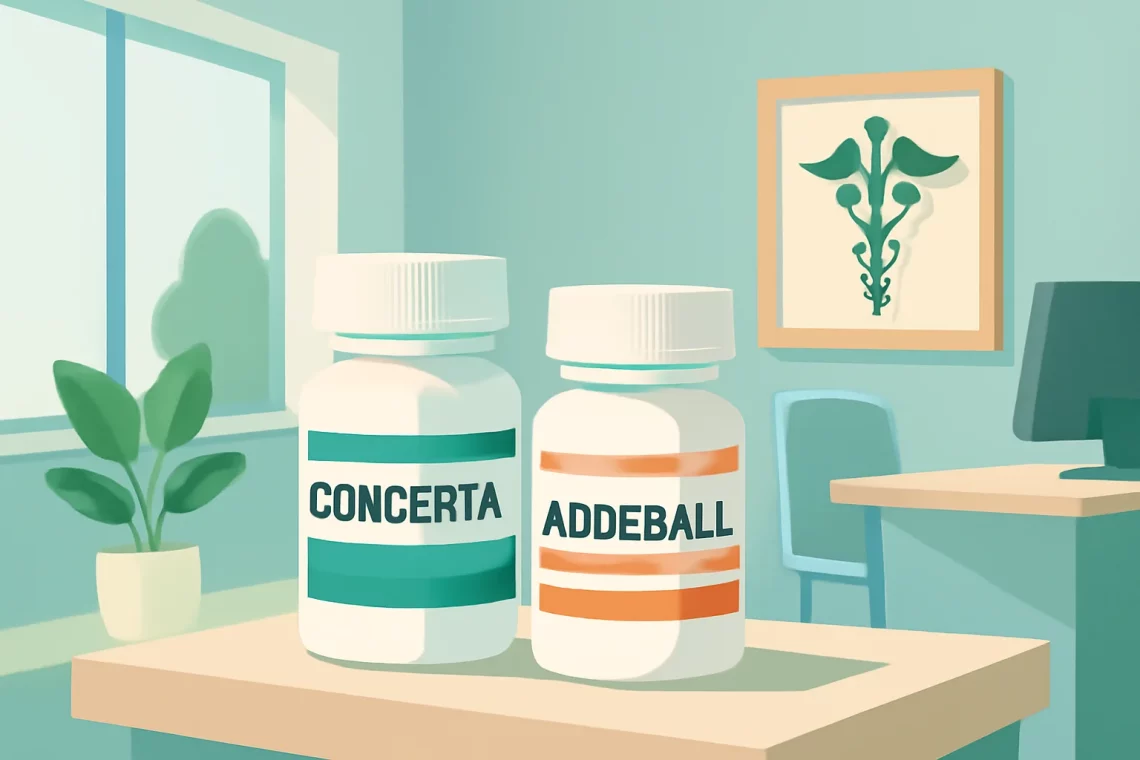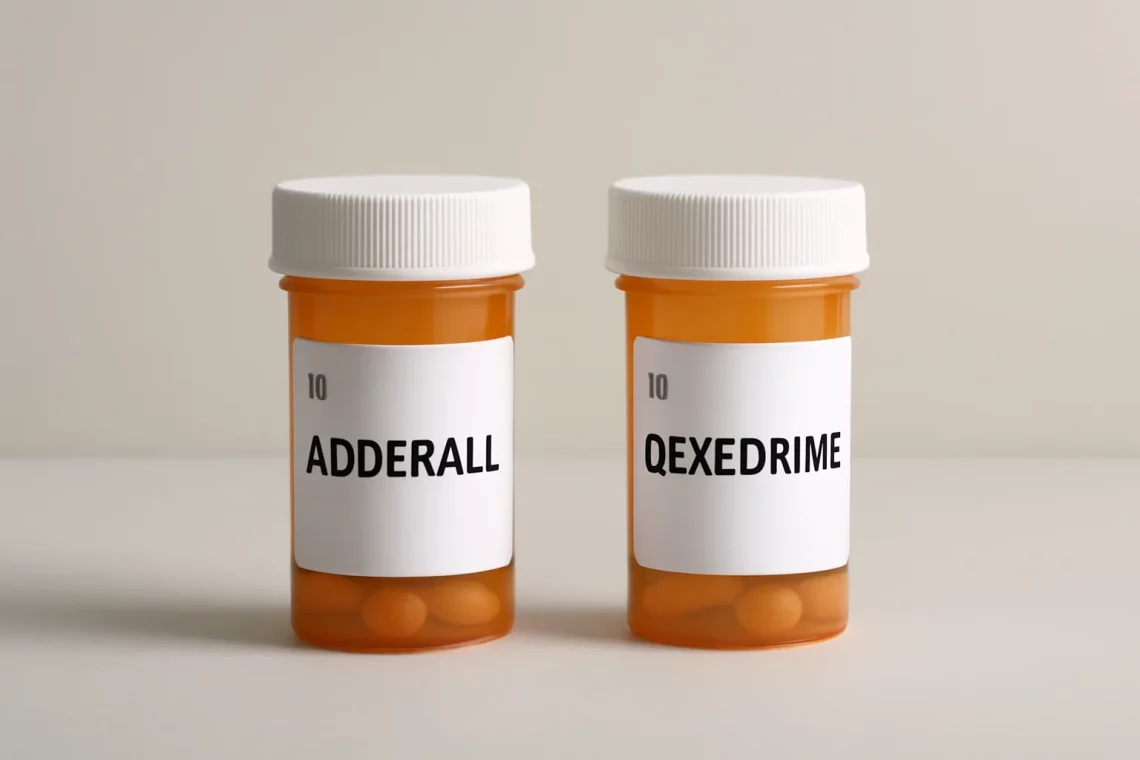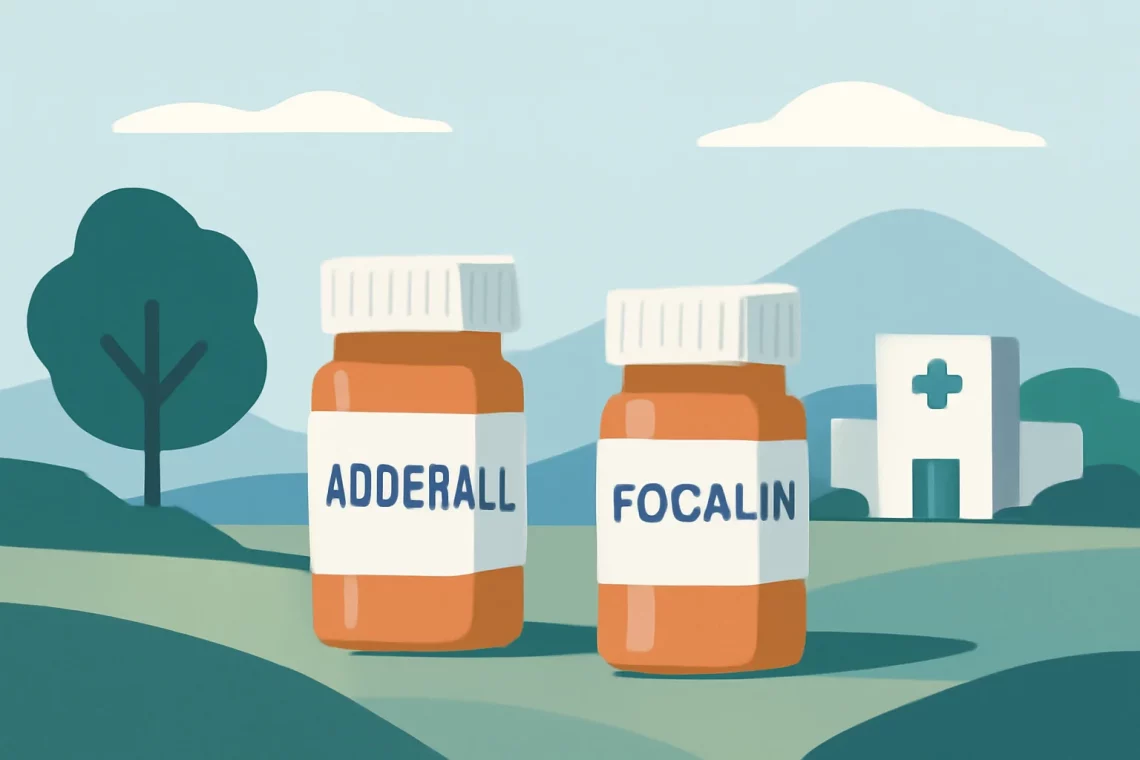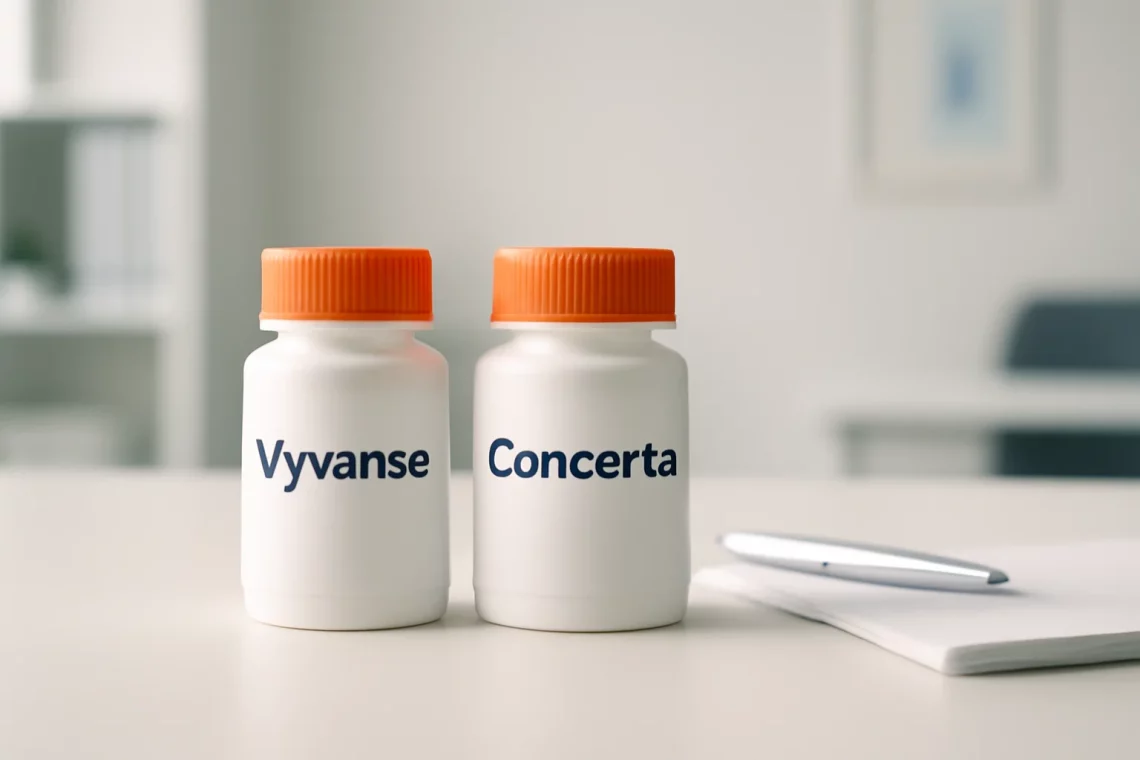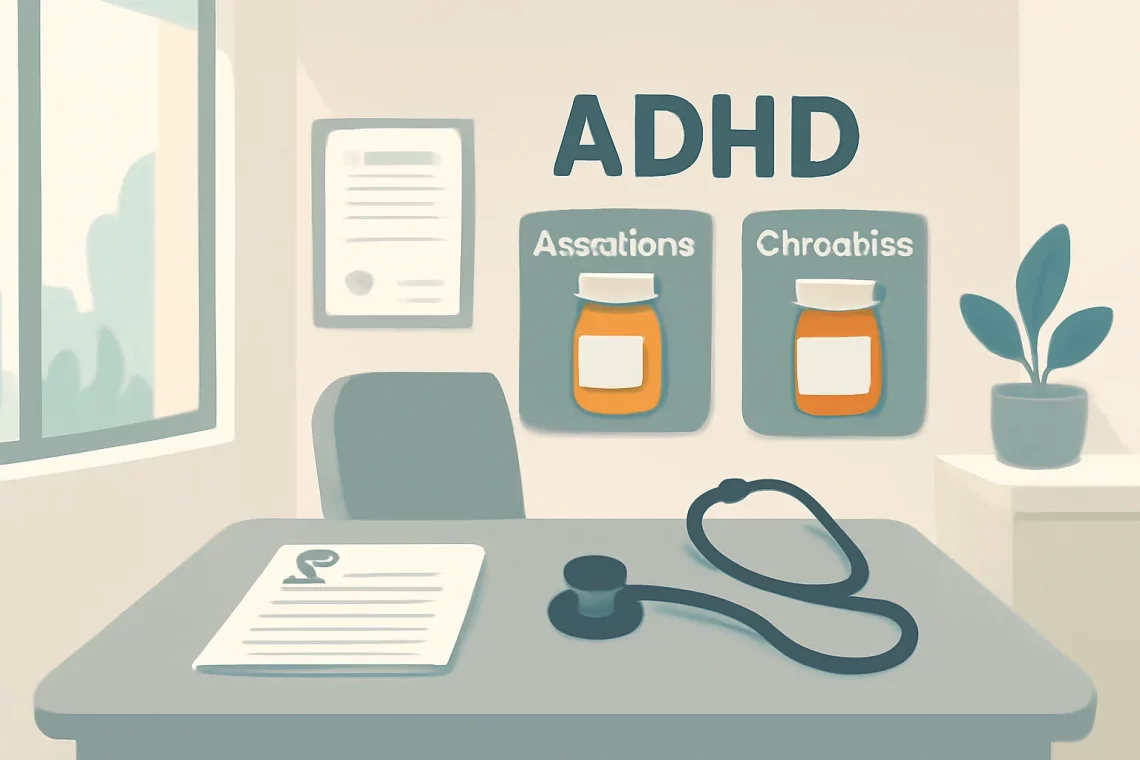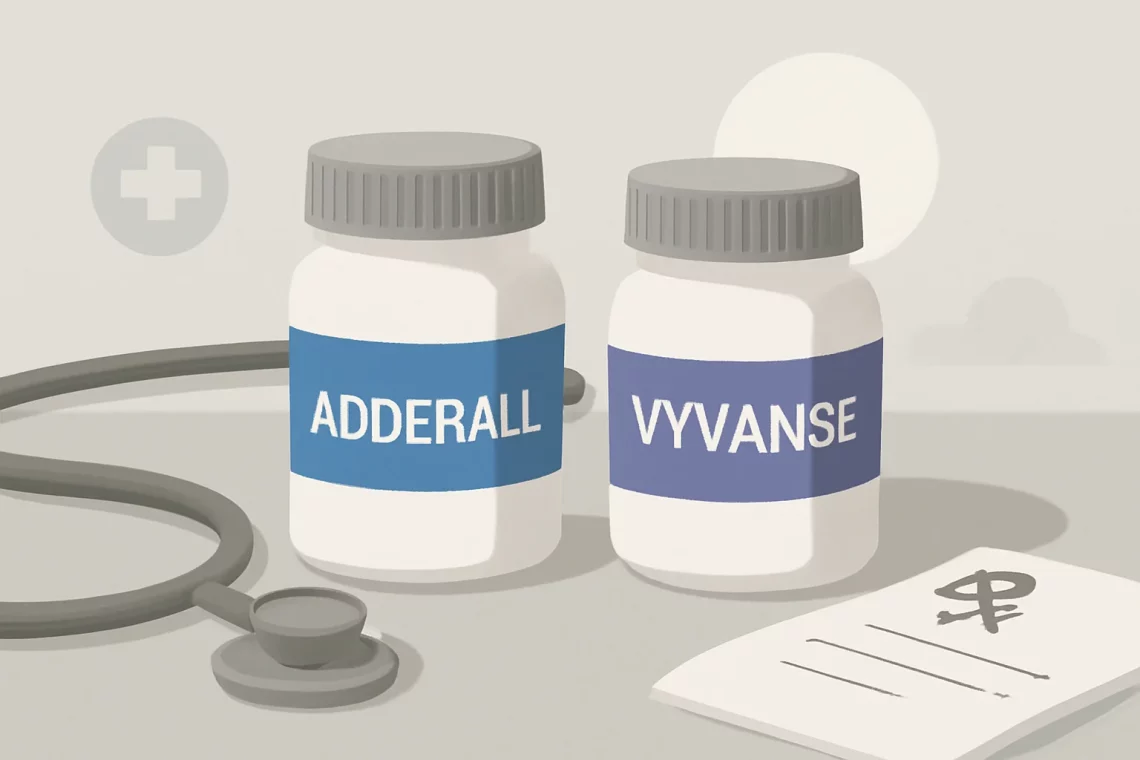-
Adderall vs Concerta: Which ADHD Medication is Right for You?
Adderall and Concerta are two well-known medications commonly prescribed for the treatment of Attention Deficit Hyperactivity Disorder (ADHD). Both drugs belong to a category of medications known as stimulants, which work by altering the levels of certain neurotransmitters in the brain to help improve focus, attention, and impulse control. While they share a common goal of managing ADHD symptoms, their chemical compositions, effects, and potential side effects can differ significantly. Understanding the nuances between Adderall and Concerta can be crucial for patients and caregivers navigating treatment options. The choice between these medications often depends on individual responses, lifestyle considerations, and specific symptoms. As ADHD awareness continues to grow, so does…
-
Adderall vs Dexedrine: Key Differences and Similarities Explained
Adderall and Dexedrine are two widely recognized medications primarily used to treat Attention Deficit Hyperactivity Disorder (ADHD) and narcolepsy. Both drugs belong to a class of medications known as stimulants, which work by increasing the levels of certain neurotransmitters in the brain, particularly dopamine and norepinephrine. This enhancement leads to improved focus, attention, and impulse control, making these medications effective for individuals struggling with these conditions. Despite their similar uses, Adderall and Dexedrine have distinct differences in their formulations, active ingredients, and how they affect individuals. Understanding these differences is crucial for patients, caregivers, and healthcare providers when considering treatment options. With the rise in ADHD diagnoses and the increasing…
-
Adderall vs Focalin: Choosing the Right ADHD Medication for You
Adderall and Focalin are two widely recognized medications primarily used in the treatment of Attention Deficit Hyperactivity Disorder (ADHD). Both medications are classified as central nervous system stimulants, and they function by affecting certain neurotransmitters in the brain, which play a crucial role in attention, focus, and impulse control. While they share a common purpose, the way they exert their effects, their chemical compositions, and their side effect profiles can differ significantly. In the realm of ADHD treatment, understanding the nuances between these two medications can be essential for patients and healthcare providers alike. Factors such as dosage forms, duration of action, and individual patient response can heavily influence the…
-
Vyvanse vs Concerta: Choosing the Right ADHD Medication for You
Vyvanse and Concerta are two of the most commonly prescribed medications for the treatment of Attention Deficit Hyperactivity Disorder (ADHD). Both medications play a crucial role in helping individuals manage their symptoms, enhancing focus, and improving overall quality of life. However, the choice between Vyvanse and Concerta can be daunting for patients and their families, as each medication has its unique properties, benefits, and potential side effects. In recent years, there has been increasing awareness about ADHD, leading to more diagnoses and subsequent treatment options. While the effectiveness of medication is often highlighted, it’s essential to consider the individual needs of each patient. Factors such as age, lifestyle, and medical…
-
Vyvanse or Concerta Which ADHD Medication is Right for You?
Vyvanse and Concerta are both popular medications used in the treatment of Attention Deficit Hyperactivity Disorder (ADHD). As awareness of ADHD has grown, so has the discussion surrounding the most effective treatments. Each medication has its unique properties, benefits, and potential side effects, which can significantly influence a patient’s quality of life. The choice between Vyvanse and Concerta is often influenced by individual needs, lifestyle, and medical history. Understanding the differences between these medications can help individuals make informed decisions about their treatment options. As ADHD continues to be a prevalent diagnosis among children and adults alike, the conversation around the most effective ways to manage its symptoms is more…
-
Adderall vs Strattera: Choosing the Right ADHD Medication for You
Attention deficit hyperactivity disorder (ADHD) affects millions of individuals worldwide, leading to challenges in focusing, organizing, and managing daily tasks. As awareness around ADHD has expanded, so too have the options for treatment. Among the most commonly prescribed medications are Adderall and Strattera, both of which aim to alleviate the symptoms associated with ADHD. However, their mechanisms of action, efficacy, and side effects differ significantly, leading to debates among healthcare professionals, patients, and families regarding the best approach to treatment. The complexity of ADHD necessitates a nuanced understanding of these medications. Adderall, a stimulant medication, is often favored for its rapid action and immediate symptom relief, making it a popular…
-
Adderall vs Qelbree: Comparing ADHD Medications and Their Effects
Adderall and Qelbree are two medications commonly prescribed for the treatment of attention deficit hyperactivity disorder (ADHD). Both drugs have unique properties and mechanisms of action, making them suitable for different patient needs and preferences. As ADHD continues to be a prevalent condition affecting children, adolescents, and adults, understanding the differences between these medications becomes increasingly important for patients, caregivers, and healthcare providers alike. While Adderall is a stimulant medication that has been widely used for many years, Qelbree represents a newer, non-stimulant option that offers an alternative for those who may not respond well to traditional stimulant treatments or who experience undesirable side effects. The choice between these two…
-
Guanfacine vs Clonidine: Choosing the Right Medication for ADHD
Guanfacine and clonidine are both medications that belong to a class known as alpha-2 adrenergic agonists. They are primarily used to treat attention deficit hyperactivity disorder (ADHD) and hypertension, but they have gained attention for their potential benefits in various other conditions. As the medical community continues to explore their pharmacological profiles, patients and healthcare professionals alike seek to understand the nuances of each medication. Both guanfacine and clonidine work by affecting certain receptors in the brain, leading to a decrease in sympathetic nervous system activity. This can result in lowered heart rate and blood pressure, as well as improvements in attention and impulse control. However, despite their similarities, these…
-
Adderall vs Vyvanse Which ADHD Medication Is Right for You
Adderall and Vyvanse are two of the most commonly prescribed medications for Attention Deficit Hyperactivity Disorder (ADHD). Both drugs are stimulants that affect chemicals in the brain and nerves that contribute to hyperactivity and impulse control. However, despite their similar purposes, they have distinct differences in formulation, duration of action, and side effects, making them suitable for different patients depending on their specific needs. Understanding these differences is crucial for individuals diagnosed with ADHD and their families, as it can impact treatment outcomes significantly. As the prevalence of ADHD continues to rise, so does the importance of finding the right medication. Patients often find themselves faced with the decision of…
-
Adderall vs Vyvanse Which ADHD Medication is Right for You
Adderall and Vyvanse are two of the most commonly prescribed medications for Attention Deficit Hyperactivity Disorder (ADHD). Both drugs are known for their effectiveness in improving focus, attention, and impulse control in individuals diagnosed with ADHD. However, despite their similarities, they possess distinct differences in formulation, mechanism of action, side effects, and overall user experience. Understanding these differences can be crucial for patients, caregivers, and healthcare professionals in making informed decisions regarding treatment options. As the prevalence of ADHD continues to rise, so does the need for effective management strategies. The choice between Adderall and Vyvanse can significantly impact an individual’s quality of life, and it is essential to consider…
